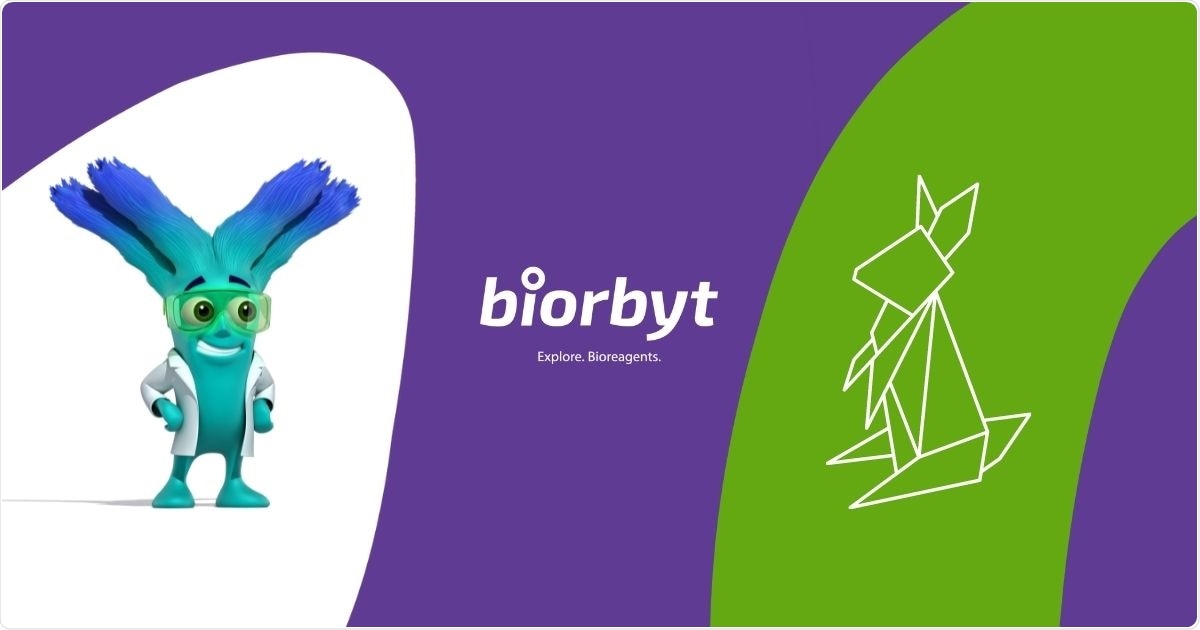Advancing ethical recombinant antibody research with the customer in mind

 insights from industryDr. Tillman ZiegertManaging DirectorBiorbyt Ltd.
insights from industryDr. Tillman ZiegertManaging DirectorBiorbyt Ltd.In this interview, News-Medical speaks to Dr. Tillmann Ziegert, Managing Director at Biorbyt Ltd., about the balance between enhancing ethical research opportunities and keeping customers at center stage.

Image credit: Biorbyt Ltd.
Could you give our readers an introduction to your company and the debate around the use of animals in research?
Biorbyt Ltd. is a biotech company based in Cambridge, UK, that supplies over 500,000 reagents to researchers and academics worldwide. Our business direction is firmly driven by customer demands, and is combined with a dedicated service to enable their research to continue with fewer issues.
Sustainability and business ethics have been, quite rightly, the topic of many recent conversations in the scientific community, and must therefore be high on the agenda for any company looking to succeed in the coming decades.
In the life sciences sector, there is much discussion around the three ‘R’s – replacement, reduction and refinement – which aim to provide a framework for a more ethical approach to animal testing. But to what end should these important subjects drive a company’s direction? Shouldn’t the customer also be at the forefront of these conversations, to ensure their needs are met and safeguard business prosperity? These are just two questions every company must answer to find the right balance moving forward.
What are the technologies driving this debate, and what advantages do they offer?
For our business, the three ‘R’s refer specifically to the use of recombinant technologies over traditional antibodies – monoclonal and polyclonal – which have the huge advantage of being animal-free.
Instead of using an animal host, for example, a rabbit or mouse, researchers use recombinant DNA technologies to express an antibody in a cell-based system, which can then be isolated and manufactured. Recombinant antibodies also offer unparalleled batch-to-batch consistency, enabling heightened reproducibility and scalability, as they can be produced in unlimited quantities once the required DNA sequence has been isolated.
What are the limitations of these technologies compared to using traditional methods?
The major challenge is the background work needed to find each antibody’s specific sequence, which is both time consuming and costly. The core recombinant DNA technology itself is relatively inexpensive, and is compatible with automation processes to allow high throughput research.
Therefore, if sequences are freely available, recombinant antibodies can easily be made in high volumes, and at little cost. Otherwise, an R&D project must first establish the sequence of the antibody of interest, and then validate the antibody’s specificity through techniques such as western blotting, immunohistochemistry or immunoprecipitation. These processes are time-consuming and expensive, and simply get you to the starting line before making the actual antibodies.
Are recombinant antibodies in high demand? Do you think they are more sought after now?
The benefits discussed above are likely to drive more interest towards recombinant technologies but, for now, they still only make up a small percentage of our business. Animal-derived antibodies still dominate the market, and this is unlikely to change significantly in the near future.
For recombinant antibodies to put forward a good business case, they need to offer similar or better performance at a comparable price. If an animal-free reagent offers the same specificity and sensitivity at a similar cost, customers will be more inclined to choose this option. These reagents play just one small part in an experiment, and customers are unlikely to switch based on ethical reasons alone as, in business, performance and budgets often outweigh the moral high ground.
Where do you see recombinant technologies being incorporated first? What could help popularize them among your customers?
A commercially viable direction is to develop these technologies for diagnostic assays that are in high demand, such as COVID-19 diagnostic kits, which are being sold in the millions at present. The expensive background R&D is usually worthwhile, especially with the improved batch-to-batch consistency allowing for greater scalability.
Another area where recombinant technologies are likely to excel is with established reagents that have a steady and continuous demand, and so the R&D project to discover the relevant sequences is likely to be commercially viable. For certain research projects, the benefits can offset the costs to offer a better long-term solution.
Is this where Biorbyt is looking to expand its recombinant portfolio?
Yes, either commercially viable targets that are used in diagnostic assays or reagents we sell in large quantities. Carrying out the R&D to determine the sequence of existing antibodies is expected to be worthwhile, so it makes sense to explore alternative methods of making them. We are driven by what our customers want, and by exceptional cases that present a rationale for developing new technologies.
What are your final thoughts in this debate?
Ultimately, everyone would prefer to use animal-free products, but we must also be realistic. If we want research techniques in science and medicine to continue their rapid advancements, we must provide researchers with the right tools, at the best price. The COVID-19 pandemic has shown us, quite starkly, how quickly research can move when necessary and, for this reason, researchers must have the best tools at hand to reach their desired goals in a timely fashion. And if these tools largely already exist, why shouldn’t efforts focus on improving human health and our quality of life?
Our aim, through the network of companies we work with, as well as our internal research, is to provide our customers with as much choice as possible. We will always strive to deliver products that create consistent results, and if they are manufactured in an animal-free way, then it’s a worthwhile benefit. Technology is constantly evolving, and there is clearly a growing market for recombinant antibodies, which customers will undoubtedly start choosing to enhance their research capabilities.
About Dr. Tillmann Ziegert
Tillmann Ziegert is the Managing Director and founder of Biorbyt Ltd. Tillmann has a Ph.D. in biochemistry and a bachelor’s degree in philosophy, politics and history. He is a highly skilled commercial manager with over 15 years of experience in marketing, sales and business development in the scientific sector. His comprehensive eMarketing proficiencies have been developed through extensive business in global markets.

Where can readers find more information?
Your readers can find more information on our website.
About Biorbyt
 Based in Cambridge, one of Europe's largest bioscience hubs, Biorbyt has a simple yet challenging mission: to provide the best service to the global scientific community.
Based in Cambridge, one of Europe's largest bioscience hubs, Biorbyt has a simple yet challenging mission: to provide the best service to the global scientific community.
We achieve this by collaborating with the world’s finest researchers and academics to develop products of the highest quality. We carefully manufacture and meticulously test a wide range of reagents to meet your needs. We offer reagents that have been extensively tested in areas some of our competitors can't offer. Whether you need antibodies or ELISA kits, biochemicals or a custom request, you can depend on us to do things differently.
As a team of expert scientists with many years of bench experience, we know the issues you face every day. Let us know your requirements and we’ll strive to exceed your expectations. No matter your research area or which products you’re interested in, we're here to help.
Getting in touch or making a purchase is easy. As well as offices in Cambridge (UK), St. Louis (US) and Wuhan (China), our strong distributor network means we can deliver a dedicated service close to you, wherever you are.
Sponsored Content Policy: News-Medical.net publishes articles and related content that may be derived from sources where we have existing commercial relationships, provided such content adds value to the core editorial ethos of News-Medical.Net which is to educate and inform site visitors interested in medical research, science, medical devices and treatments.
Source: Read Full Article